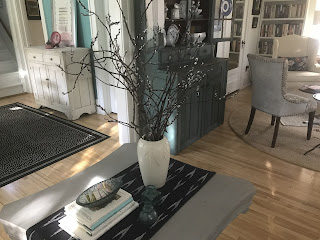I am not a white supremacist.
I suspect, however, as much as I don't want to be, I am a racist in some of my behaviors and attitudes. I am trying to become aware of those behaviors and attitudes.
What is clear, especially after reading Caste, The Origins of Our Discontents by Isabel Wilkerson, is that I am a member of the dominant caste. And I am in the dominant caste because I am white.
Normally, this is the kind of book in which I would underline line after line, paragraph after paragraph of relevant and well-written content, but in this case there would be little left unmarked. I marveled at the superb writing and agonized at the overwhelming examples of caste throughout the history of the United States. And I remain deeply saddened by the ways caste, mainly the division between the dominant and the subordinate castes, remains a firm reality today.
Here is one paragraph I did underline:
What people look like, or, rather, the race they have been
assigned or are perceived to belong to, is the visible cue
to their caste. It is the historic flash card to the public
of how they are to be treated, where they are expected
to live, what kinds of positions they are expected to hold,
whether they belong in this section of town or that seat
in the boardroom, whether they should be expected to
speak with authority on this or that subject, whether
they will be administered pain relief in a hospital,
whether their neighborhood is likely to adjoin a toxic
waste site or to have contaminated water flowing from
their taps, whether they are more or less likely to survive
childbirth in the most advanced nation in the world,
whether they may be shot by authorities with impunity.
pp. 18-19
I am white and in the dominant caste, and if you are a Black American or perceived to be black, then you are in the subordinate caste. And being in the subordinate class means you are considered less than. You are considered not quite as human as I am.
We have all been shaped by this rigid caste system.
Wilkerson compares the caste systems of the U.S. to both India and Nazi Germany. When Martin Luther King, Jr visited India in 1959 a principal of a high school introduced King to his students, saying, "Young people I would like to present to you a fellow untouchable from the United States of America." Wilkerson also documents how the Nazis studied the racial systems in America to plan their outcasting of the Jews.
 As example after example is given of how African Americans are mistreated and abused mentally, physically, and spiritually, including the author herself, I find it hard to imagine how this long-standing system can be dismantled. I know that can't happen, however, unless we confront the truth about ourselves as white people, as the dominant caste--even those among us who are more aware and are working actively for racial and social justice.
As example after example is given of how African Americans are mistreated and abused mentally, physically, and spiritually, including the author herself, I find it hard to imagine how this long-standing system can be dismantled. I know that can't happen, however, unless we confront the truth about ourselves as white people, as the dominant caste--even those among us who are more aware and are working actively for racial and social justice.
Radical empathy, on the other hand, means putting in
the work to educate oneself and to listen with a humble
heart to understand another's experience from their
experience from their perspective, not as we imagine
we would feel. Radical empathy is not about you and
what you think you would do in a situation you have
never been in and perhaps never will. It is the kindred
connection from a place of deep knowing that opens
your spirit to the pain of another as they perceive it.
p. 386
This week the trial of Minneapolis police officer Derek Chauvin accused of murdering George Floyd begins. What needs to be on trial is the racially disportionate treatment of Black Americans by the police--treatment that is caused by the caste system.
Wilkerson's previous book, The Warmth of Other Suns, is brilliant as well, and I hope you will read that, too, but this one does more than enlarge your knowledge of history. Caste opens your heart.
An Invitation
What have you learned or experienced recently that has cracked open your awareness? I would love to know.









